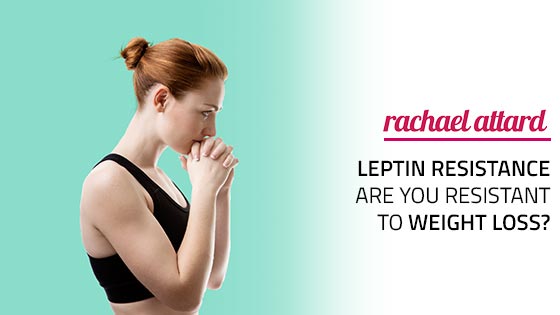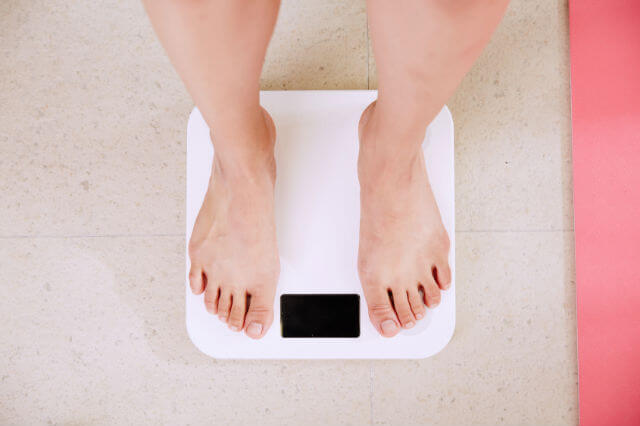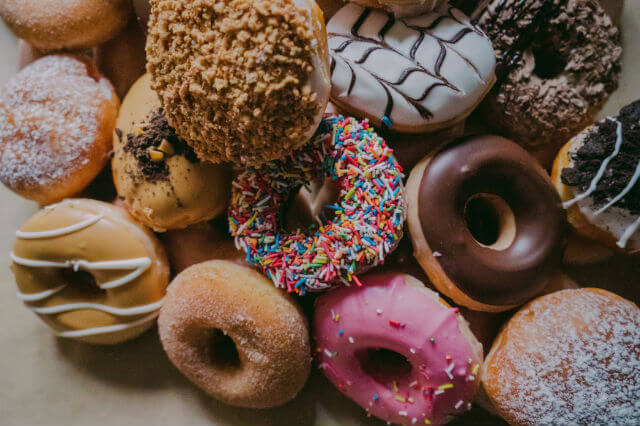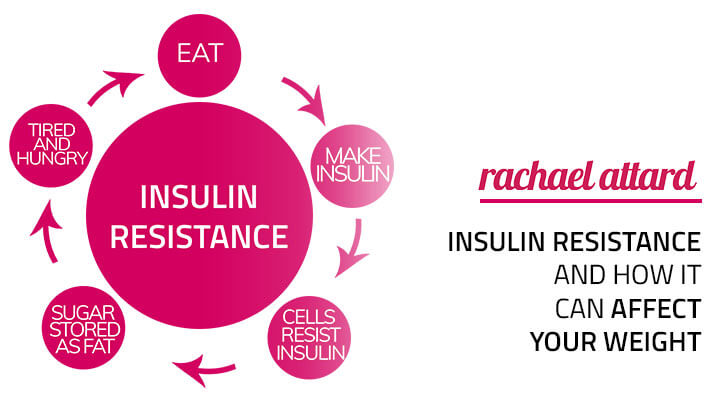Leptin Resistance – Are You Resistant to Weight Loss?

We all know that a healthy weight is something we should aim for but sometimes, shedding excess pounds can feel like an uphill battle. Recently, one of the girls that follow me on Insta sent me a DM asking me about leptin (hormone) resistance and leptin’s role in weight loss.
She said she simply cannot lose weight, no matter what she does and that she read online that leptin might be the cause. She seemed upset and frustrated so I decided to do some research (even though I’m not a doctor!).
And as you may know, I’ve also had health issues of my own and I’m no stranger to doing a lot of research on hormones. I also have leptin resistance so it’s something I have been focusing on a lot lately.
Hormones play a huge role in your ability to lose weight, so it’s important not to brush them off or ignore them.
Here’s what I’ve learned about leptin resistance and its relation to weight loss.
What is Leptin?
Leptin is a relative newcomer to science’s understanding of hormones. It was discovered in 1994 and is thought to control (or at least heavily influence) your body’s ability to lose weight. It has a bunch of nicknames: the starvation hormone, the obesity hormone, the fat hormone…the list goes on.
Your body stores fat to keep you supplied with the energy you need to live, work, play, and even sleep. Leptin is the hormone that tells your brain when you have enough fat stored up. This results in that “Oh, I’m full,” feeling when you’ve consumed enough calories.
Back when we had to hunt and gather our food, leptin helped our bodies create fat stores to get through those lean times. When food was plentiful, it also told us when to stop eating so we weren’t sluggish.
Though we can now purchase food whenever we’re hungry, leptin still works in the same way. It manages the calories we eat and use throughout the day to give us energy and tells the body when to start burning fat cells for added fuel.
Think of leptin as the regulator for your metabolism. It tells your body when to burn calories and when to stockpile them.
Unfortunately, in people with leptin resistance, your brain doesn’t respond to the signals that leptin is giving. 
What Exactly is Leptin Resistance?
Leptin resistance is when your brain doesn’t respond to the signals that the leptin hormone is giving. This results in weight gain, obesity, an increased appetite, and other health conditions.
If leptin can’t tell your body to start burning through the stored fat for energy, all those fat cells just keep collecting and building up.
Remember how I mentioned that leptin’s nickname was the obesity hormone? This is because leptin resistance is thought to be one of the leading contributors to obesity. Hormone imbalances, including high leptin levels can contribute to weight gain. And getting rid of that weight when your body doesn’t know to burn the fat for fuel can feel almost impossible.
What Causes Leptin Resistance?
Leptin resistance can be caused by several underlying factors. The two most common causes include inflammation and poor gut health.
Inflammation
Inflammation is caused by things such as stress, being busy, not getting enough sleep, poor gut health, eating foods that don’t agree with you, alcohol, drugs, etc. One important thing to know is that overeating and binge eating also cause a huge amount of inflammation in your body.
One indicator that you can use to assess your level of inflammation are your PMS symptoms. PMS symptoms such as cravings, sore breasts and cramping are caused by inflammation. If you have had more inflammation in your body that month, cravings and other PMS symptoms will be stronger. If not, you’ll have a less painful period!
Gut Health
I struggled with gut health a while back. A healthy gut is full of beneficial bacteria which helps break down food and absorb nutrients. When the bacteria count is low or your gut has a larger number of harmful bacteria, it can send the wrong signals to your brain.
Having healthy gut health also means having a strong gut wall lining, and the correct pH.
When you have poor gut health, you’ll crave more food, eat more, and get fewer nutrients from what your gut digests. This triggers the starvation signal with the leptin hormone, causing you to reach for even more food to satisfy the craving for nutrients.
Understand some contributing factors
As with most health conditions related to hormones, there are a number of things that can contribute to leptin resistance.
- Stress Levels: High stress can disrupt your hormone levels and cause imbalances. It is also a huge source of inflammation.
- Lack of Sleep: Your body needs an average of eight hours of rest each night. Not getting enough may contribute to weight gain due to increased cortisol levels and increased inflammation.
- Overeating: The more you eat, the more fat can be stored in your cells. Eating too much actually reduces the effectiveness of leptin’s signals to stop eating, creating a vicious cycle of overeating. Not to mention the inflammation!
- Getting Too Much Exercise: Exercise is great, but working out too hard or too intensely can disrupt your hormones and cause problems with your leptin levels.
Remember, the only way to definitively diagnose leptin resistance is to speak with your doctor. They’ll use a simple blood test to monitor the levels of leptin in your body. If they’re too high, you’re leptin resistant.
Can Leptin Help with Weight Loss?
Leptin is a major contributing factor when it comes to weight loss. After all, it tells your body when you’ve had enough to eat, when you need more, and when to store fat or burn it. When leptin levels are ideal, your body will stop craving food when you’ve had enough calories.
This means you’ll eat less and be able to power through those fat cells for energy throughout the day. The more fat you burn, the more weight you’ll lose. When your leptin levels are too high or you’re leptin resistant, your body will work to hold onto those fat stores, making it nearly impossible to lose weight.
Worse, if you start to lose weight and continue to be leptin resistant, your body will work hard to regain that weight and replenish the fat stores, making it even more difficult to keep the weight off long-term.
It is possible to lose weight and reverse leptin resistance
Believe it or not, leptin resistance does not mean you can’t lose weight. It just means you need to work hard and follow a healthy diet and exercise routine consistently.
Once you’ve been diagnosed by your doctor, you can start taking the proper steps towards resetting your leptin levels and improving your body’s response to the signals it sends to your brain.
The key to successful leptin resistance treatment is addressing the root causes we discussed earlier: inflammation and gut health.
Here are some other things you can do.
Exercise regularly
Yes, exercising too much can do more harm than good, but exercising the right amount is one of the best ways to reverse leptin resistance and keep your metabolism going strong. Aim for shorter workouts that engage all of the muscles in your body. Here is a simple workout you can do to get started.
Stay away from processed food
Junk food may taste great, but it is full of sugar and unnecessary calories, and it can damage your healthy gut bacteria. Instead of opting for convenience foods and junk food, start eating nutrient-rich foods. All it takes is a little bit of planning ahead. Not sure where to start? Check out my blog post on how to meal-plan!
Take probiotics and prebiotics
A healthy gut is key for reducing and reversing leptin resistance. In addition to eating healthy foods, make sure to feed your gut bacteria. Take a good quality probiotic supplements, and eat prebiotic foods.
Prebiotic-rich foods include fermented foods like kimchi, yogurt, sauerkraut, and kombucha, as well as lentils, garlic, peaches, watermelon, beets, and artichokes in your diet.
Other things you can do to strengthen your gut wall lining include taking L-glutamine powder each day, and drinking bone broth which is full of collagen.
Avoid sugar and grains
Sugar and grains all elevate your blood sugar levels and increase the risk of inflammation. By avoiding foods high in sugar, you’ll help reverse the inflammation in your body and thus may help reverse leptin resistance keeping you from losing weight. You can still satisfy your sweet tooth with fruit!
Eat more, less frequently
Grazing and snacking throughout the day does not increase your metabolism.
Instead, eat larger meals, less frequently and avoid snacking in between those meals. The break in between meals gives your leptin and insulin levels a chance to decrease.
You may also want to consider starting an intermittent fasting routine to help even more. Intermittent fasting is great for leptin resistance! Just make sure to consult with your doctor first.
And what about leptin supplements
There are supplements for almost everything these days, but that doesn’t mean you should take them. Leptin supplements often contain fillers and “nutrients” that your body doesn’t really need.
In fact, glucosamine, hexosamines, and zinc are the only recognized supplements thought to possibly—yes, possibly—lower leptin levels. Instead of stocking up on supplements, fill your pantry with fresh produce, healthy foods, and start exercising.
Get help from your doctor
Your doctor is the only one who can determine whether or not you’re leptin resistant. If you are, they’ll also be able to help you create a plan to start reversing that resistance, monitor your insulin and leptin levels, and keep your other hormones in check. While the above tips may help you lose weight, they’re not a substitute for speaking with a medical professional.
Have you struggled with leptin resistance? Did you find a way to reverse it and keep the weight off? Share your story in the comments below.
*Disclaimer: I am not a doctor, and as such cannot diagnose or treat any medical issues. Readers are advised to do their own research and make decisions in partnership with their health care provider. If you are pregnant, nursing, have a medical condition or are taking any medication, please consult your physician. Nothing you read here should be relied upon to determine dietary changes, a medical diagnosis or courses of treatment.






